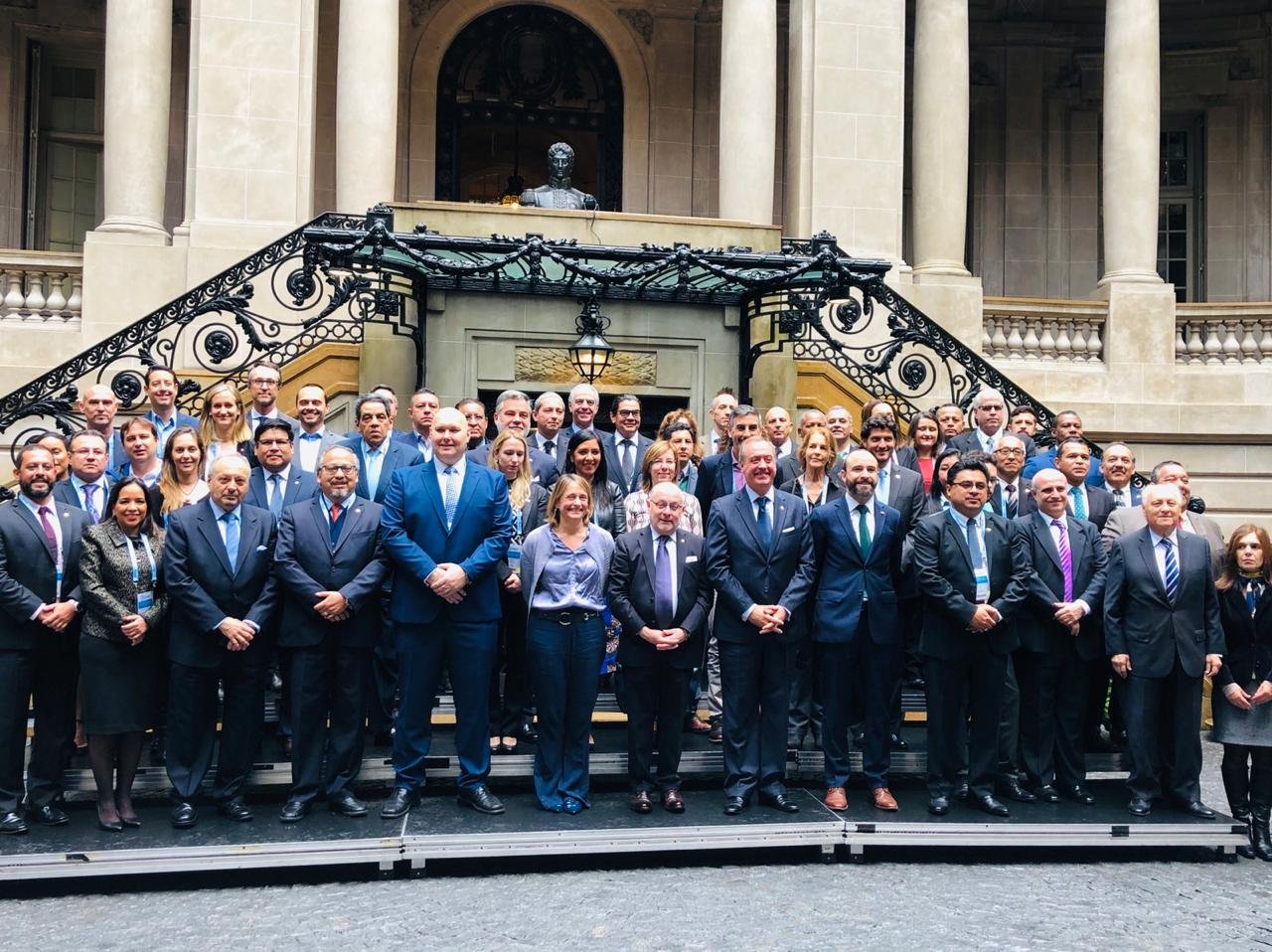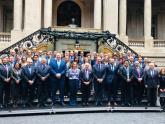The IX Meeting of the International Mechanisms for Humanitarian Assistance (MIAH) has concluded. Organized by the White Helmets Commission, with the support of the Regional Office for Latin America and the Caribbean of the United Nations Office for the Coordination of Humanitarian Affairs (OCHA), it took place in the San Martin Palace – ceremonial headquarters of the Argentine Ministry of Foreign Affairs and Worship– between June 12th and June 14th this year.
The meeting allowed the debate of several aspects of human mobility in the context of humanitarian crisis, as well as matters of inter-operability and effectiveness in international coordination and innovation in the humanitarian field; issues that represent current and future challenges for nations, organisms and organizations in the region alike.
The summit also contributed to the debate of potential measures to improve the coordination of humanitarian assistance and the diffusion of common tools and mechanisms, boosting new alliances between all actors in the region.
The attendees passed the “Declaration of Buenos Aires”, instrument that gathers the results of the meeting, identifying and promoting the establishment of common mechanisms and protocols of response. It also fosters the development of coordinated activities that pave the way for disaster risk-reduction by facilitating a prompt, efficient and comprehensive response, under the current international principles and framework.
The forum reunited a wide variety of actors involved in humanitarian coordination, including regional and international organizations, governments, NGOs, the International Red Cross and Red Crescent Movement, donor agencies and the private sector. It constituted a fair opportunity to share lessons, and strengthen the planning and cooperation in humanitarian affairs all over the region.
Throughout these years, MIAH has become the most important regional forum for the debate of mechanisms pertaining to the operational aspect of International Humanitarian Assistance, facilitating the discussion of affairs that shape the current agenda, particularly, emergency preparedness for an efficient response.


